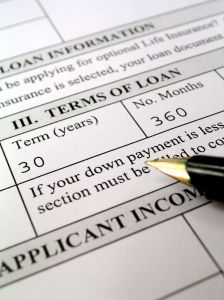
July 12, 2011
FHA Loan Rules For Co-Signers, Co-Borrowers
When a borrower applies for an FHA insured mortgage, he or she has the option of bringing a co-signer or co-borrower to the deal. It may be easy to assume the two terms are interchangeable, but they aren’t. Co-signers and co-borrowers have different rights and responsibilities under FHA regulations and it’s important to know which is which–especially if you’re the co-signer or co-borrower. The major difference between the two is that a co-borrower “takes title to the property”, meaning that there is shared ownership between co-borrowers. Co-signers sign the legal paperwork and are obligated to pay on the mortgage. Regardless of what financial arrangements have been made privately between the co-borrowers, on paper co-borrowers share responsibility for the mortgage payment. Co-borrowers must qualify for the VA loan together. Compare those | more...








